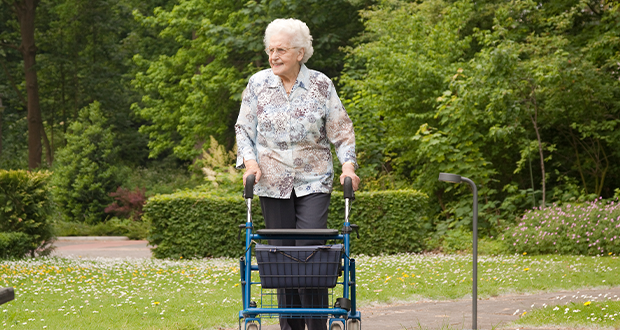New research has found that living in "greener" neighbourhoods with lower crime rates is associated with having fewer modifiable dementia risk factors.
Led by Monash University, the study investigated neighbourhood characteristics associated with dementia risk and cognition.
The study found that a doubling of distance to greenspace was equal to being about 2.5 years older in terms of dementia risk factors.
Each two-fold increase in crime was approximately equal to a reduction in memory score attributable to a three-year increase in age.
This relationship was particularly evident in those living in lower socioeconomic status (SES) areas.
Senior author of the research, Associate Professor Matthew Pase, said earlier research had already shown that dementia disproportionately affected the disadvantaged.
"In 2022, we observed that individuals residing in lower SES areas had more dementia risk factors and worse memory performance,” Professor Pase said.
"Such findings motivated us to explore the specific neighbourhood characteristics associated with dementia risk and cognition."
The new research encompassed some of the strongest modifiable dementia risk factors, including high blood pressure, obesity, high cholesterol, and physical inactivity.
"Living close to greenspace may encourage or permit people to exercise more like walk or run and also socialise like talk with locals in a park," he said.
"In our latest study, proximity to greenspace was more important than the absolute amount of greenspace in an area.
"In other words, having lots of little parks that are closer to more people might potentially be better than having one big park that is further away."
Professor Pase said higher crime rates could possibly drive behaviours linked to dementia.
"People living in an area with a high crime rate might exercise, go out and socialise in public places less as a result," he said.
"More crime could also make it difficult to sleep and spark potentially harmful coping behaviours like smoking.
"Even a perception of crime might cause psychological stress, which we previously found can be associated with dementia risk. Another possibility is that those who are more educated, which protects against dementia, are able to live in areas with low crime rates, although we adjusted for these factors in our analyses."
More than 400,000 Australians live with dementia, with 70 per cent of aged-care residents living with moderate to severe cognitive impairments, including dementia.
That number is estimated to jump to 900,000 in the next 25 years, with the recent Intergenerational Report estimating Australia's older population to triple.
New data by Dementia Australia estimates 812,500 by 2054 if there is no medical breakthrough.
The study calculated the percentage of greenspace in each postcode and the average distance to the nearest one for people living there.
On average, people lived about 260 metres from the closest green space. Crime data was obtained from the Crime Statistics Agency based on data provided by the ABS.
Lead researcher Dr Marina Cavuoto said government intervention could help improve the situation.
"Policy interventions by different levels of government could address social determinants of health at the neighbourhood level," Dr Cavuoto said.
"Collaboration between health and non-health sectors such as environment, infrastructure and housing is required to scale equitable and sustainable health promotion and dementia prevention.
"Programs that seek to improve modifiable dementia risk factors should consider the influence of neighbourhood characteristics. If governments moved to improve access to parkland and safety at a local level it could encourage healthier lifestyles that may reduce dementia risk factors."
Email [email protected]
 Aged Care Insite Australia's number one aged care news source
Aged Care Insite Australia's number one aged care news source

